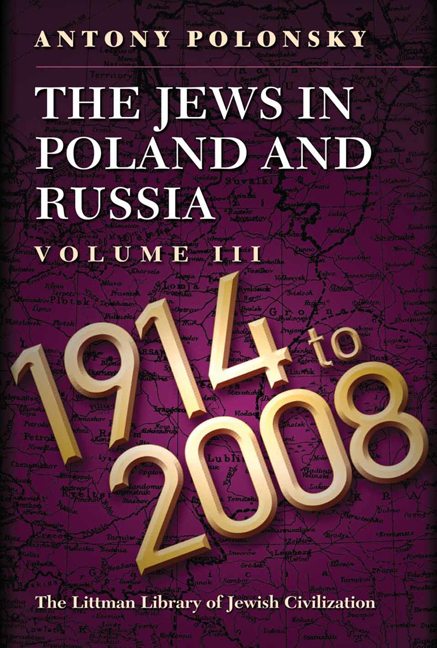Book contents
- Frontmatter
- Dedication
- Acknowledgements
- Contents
- List of Maps
- List of Tables
- Note on Transliteration
- Note on Place Names
- Maps
- General Introduction
- PART I FROM THE FIRST WORLD WAR TO THE SECOND
- PART II WAR AND GENOCIDE, 1939–1944
- PART III FROM THE END OF THE SECOND WORLD WAR TO THE COLLAPSE OF THE COMMUNIST SYSTEM
- EPILOGUE JEWS IN EASTERN EUROPE AND RUSSIA SINCE THE END OF COMMUNISM
- Conclusion
- Glossary
- Bibliography
- Index
Introduction
- Frontmatter
- Dedication
- Acknowledgements
- Contents
- List of Maps
- List of Tables
- Note on Transliteration
- Note on Place Names
- Maps
- General Introduction
- PART I FROM THE FIRST WORLD WAR TO THE SECOND
- PART II WAR AND GENOCIDE, 1939–1944
- PART III FROM THE END OF THE SECOND WORLD WAR TO THE COLLAPSE OF THE COMMUNIST SYSTEM
- EPILOGUE JEWS IN EASTERN EUROPE AND RUSSIA SINCE THE END OF COMMUNISM
- Conclusion
- Glossary
- Bibliography
- Index
Summary
THE SECOND world war left the world of east European Jewry devastated. Although the Nazis had been defeated, they had succeeded in murdering a large proportion of the Jews of eastern Europe. In Poland around 90 per cent of the pre-war Jewish population did not survive the war, while in Lithuania the proportion was even higher. More Jews survived in the Soviet Union. Of the 5.3 million Jews in the country in June 1941, nearly 3 million survived. Everywhere the structures of Jewish life had been destroyed and the survivors faced great difficulties in re-establishing themselves. In Poland they were daunted by the task of re-creating Jewish life in what seemed to them a vast Jewish cemetery. In addition, they were confronted with an outbreak of anti-Jewish violence and the imposition of a political order similar to that they had experienced in the Soviet Union during the war. Most fled the country. Those who remained found themselves living in a Stalinist regime in which communists of Jewish origin played a significant but not dominant role; nevertheless, they were often held responsible for its brutalities and oppression.
In the Soviet Union, Stalin's suspicions of its much larger Jewish community were intensified by the strong sense of Jewish national identity that had been fostered during the war by the Jewish Anti-Fascist Committee and by widespread Jewish elation at the establishment of the State of Israel in April 1948. Stalin responded by arresting and executing most of the leading Yiddish writers in the USSR. The repression of the remnants of the specifically Yiddish culture allowed in the Soviet Union was followed by the arrest of a group of Jewish doctors, who were accused of planning to murder the Kremlin leadership. The atmosphere was so threatening that rumours circulated widely that Stalin was planning a mass deportation of Jews to the Far East, something that does not seem to have been envisaged.
However, the death of Stalin did not greatly improve the position of the Jews of the Soviet Union. Under his successors the worst features of his Jewish policies were relaxed, but there was no return to the cultural flourishing of the 1920s and early 1930s, while ‘anti-Zionism’ now became a staple feature of Soviet ideology.
- Type
- Chapter
- Information
- The Jews in Poland and RussiaVolume III: 1914 to 2008, pp. 591 - 592Publisher: Liverpool University PressPrint publication year: 2012

